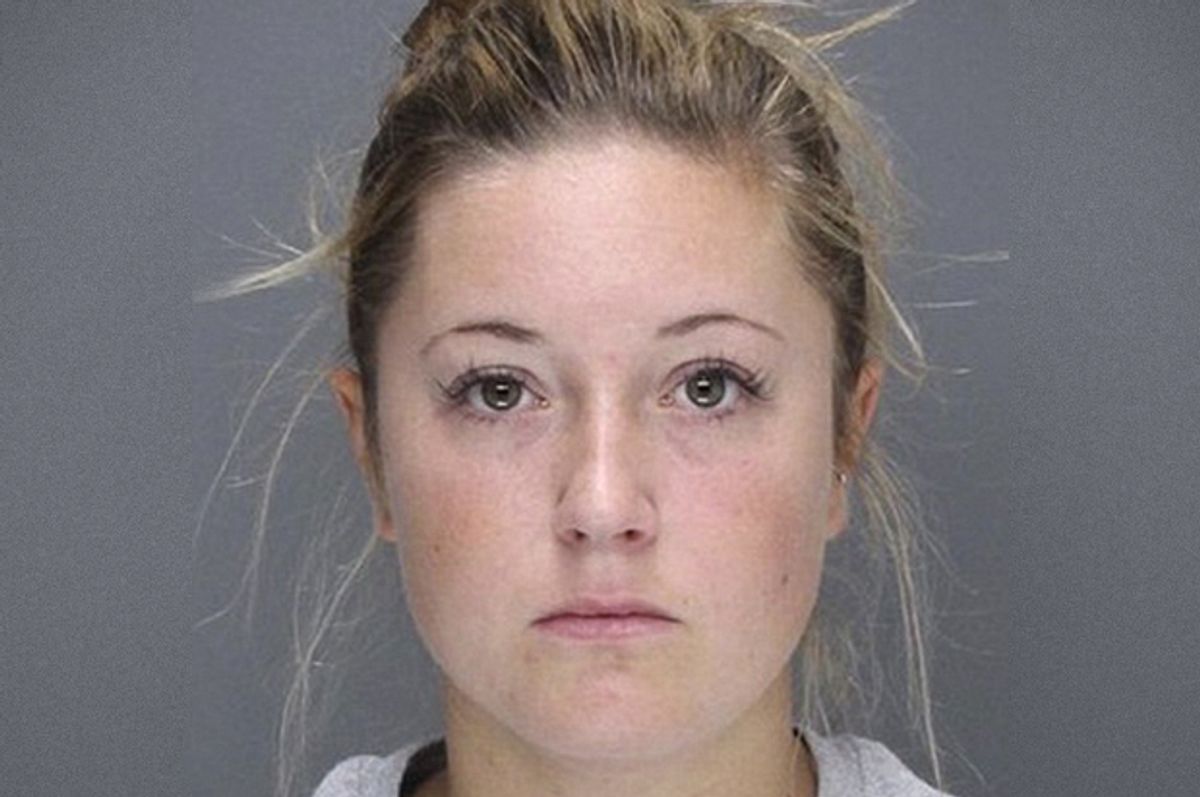When Kathryn Knott turned herself in to Philadelphia authorities earlier this week in connection with the brutal beating of two gay men, it didn't take long for her social media trail to attract widespread attention. Aside from its casual homophobia and relentless references to drunkenness, there were also an unnerving number of disdainful references – and photographs – relating to her job as an E.R. technician.
Over the course of her timeline – which, interestingly, was deleted Friday morning as I was reading through it -- Knott revealed herself to be a woman with a propensity for sharing scenes from her job. "Why would you clean your gutters in the rain?" she asked in one tweet, accompanied by an X-ray of a pelvis. "Got to pop this back in," she bragged, regarding an X-ray of a dislocated finger. She shared images she described with, "Ya know when u put a hotdog in the microwave too long? That's what his finger looked like," and in which she decided, "Kid had way too much fun at lacosta last night. Swallowed a pen spring." She admitted, "Its sick i laughed at this" [sic] over a story about an ambulance stolen with a patient inside, and confessed, "I can handle blood and vomit I CAN'T HANDLE when someone tells me they have fleas and bed bugs #disgusting #itchingfordayzzzz" and "the locals of lansdale are gross come to the ER & see for urself."
After a brief suspension, Knox has now been officially fired from her job at Lansdale Hospital-Abington Health. The facility has also announced an investigation "related to this employee’s Twitter account for potential violations of patient privacy and our organization’s social media policy." If that policy is similar to the posted one for Mass General, the one telling employees to "be aware that existing hospital policies apply, in particular, those pertaining to patient privacy," the violations should be pretty clear. But how did no one at Knox's job know what she was doing till now -- and who at that hospital still is?
The law around patient confidentiality and what constitutes a violation of the Health Insurance Portability and Accountability Act can be murky. What Knott did was deeply callous and grounds for firing, but because she didn't identify the patients, she may never face further legal ramifications for her actions. But what's disturbing about her behavior is that it's not uncommon.
Earlier this year, conservative Kansas Senate hopeful Dr. Milton Wolf made headlines for cavalierly posting "a collection of gruesome X-ray images of gunshot fatalities and medical injuries" on Facebook, observing of one deceased person, "It's not like the patient was going to complain." And last year, a Michigan hospital fired an employee after he posted a photo of an E.R. patient on Facebook with the caption, "I like what I like" – and it fired several other employees along with him for liking it. Four years ago, four staffers at St. Mary's Medical Center in Long Beach were fired and three were disciplined after taking and posting photographs of a gruesomely wounded stabbing victim who later died. As the L.A. Times reported at the time, several other local hospitals have in recent years come under investigation for similar violations of privacy.
Writing in "The Ethicist" three years ago, Randy Cohen acknowledged that "battlefield humor can be a benign response to harrowing circumstances," but quoted a doctor who advised, "public displays of such humor on the Internet, along with photos that even if not identified could be identifiable, are inappropriate and unprofessional."
What happened to the two men Knott encountered on a Philadelphia street two weeks ago is now up to the justice system. But what happened in the course of her career as a hospital worker should serve as depressing warning to all of us who may one day find ourselves injured and vulnerable. And it says just how easily the person tending to us can use our pain as a social media punch line.



Shares